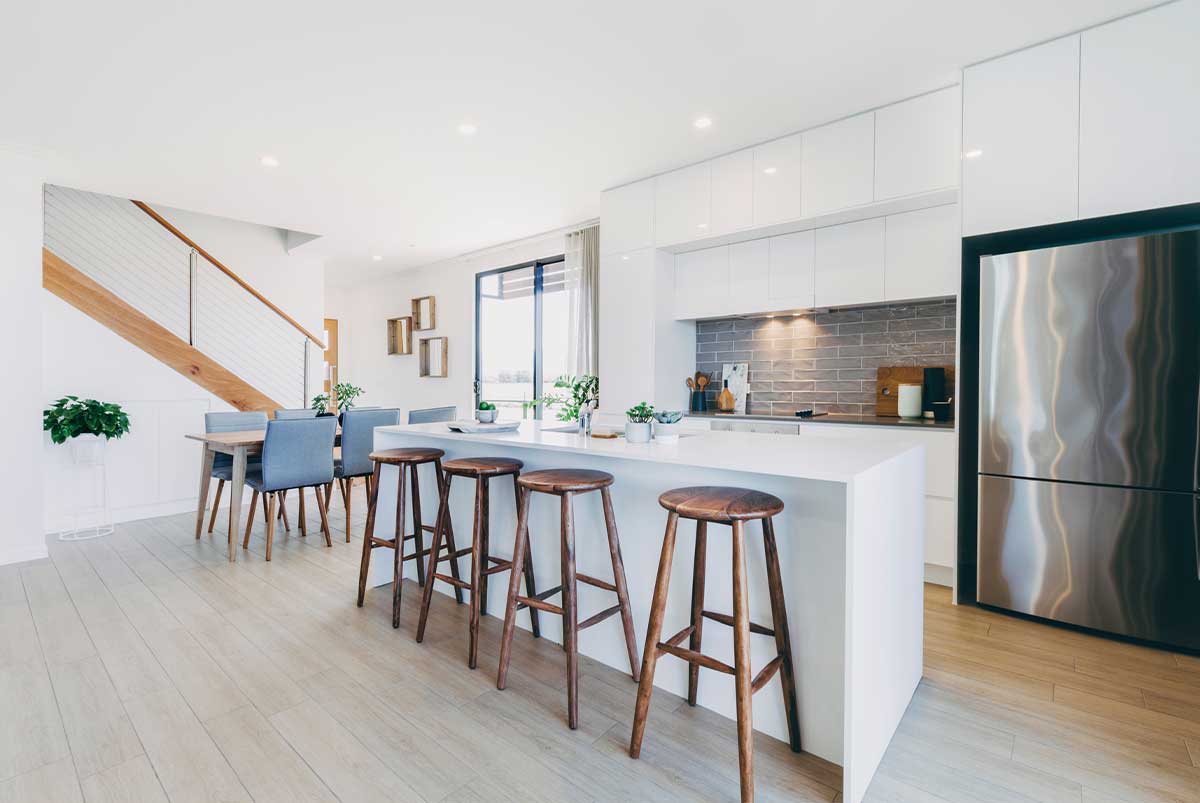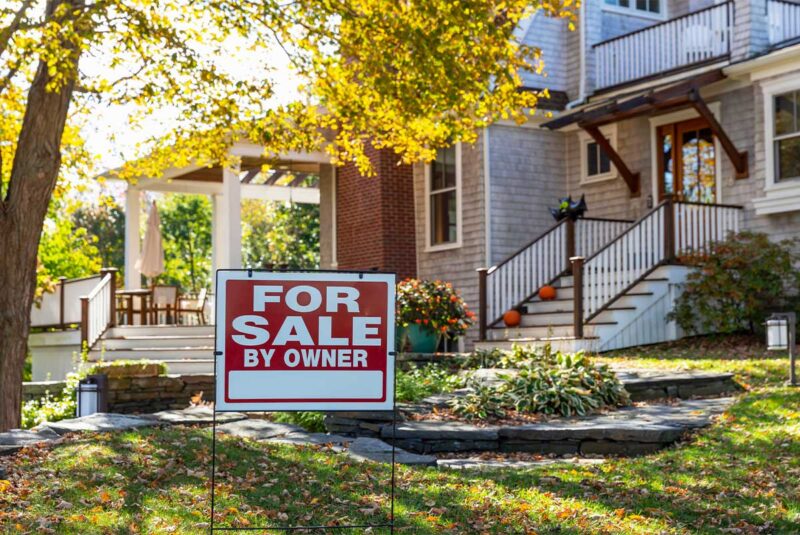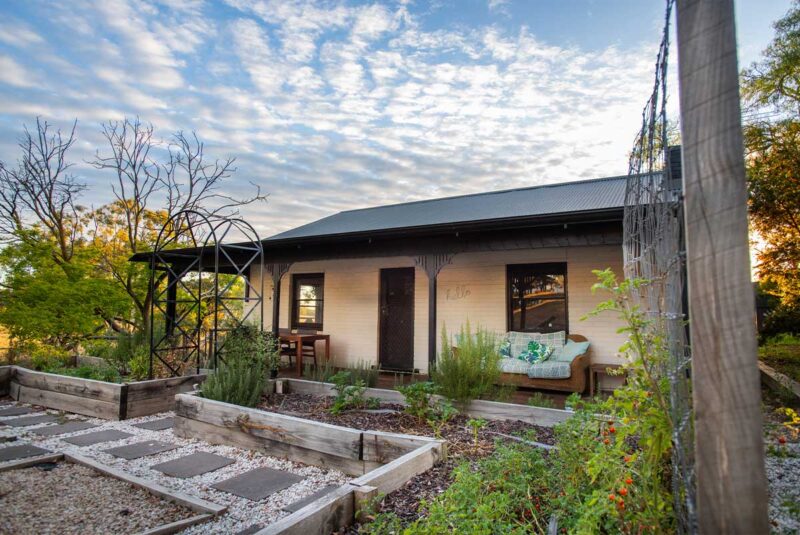Ready To Buy a Home?
Get Approved to Buy a Home
Rocket Mortgage® lets you get to house hunting sooner.
A lot goes into buying a house. Considering it’s one of the biggest purchases people are likely to make in their lifetimes, it makes sense they’d want to know as much as possible going in.
We’ll go over the most important things to look for, but know there’s no one-size-fits-all evaluation for houses. Some things are generally bad, like mold, but tolerance for red flags will vary from person to person.
Where one person sees a house that needs work, someone else might see a diamond in the rough.
3 Critical Areas To Consider When Buying a House
There are many factors to consider when you’re looking for your next home. To help keep them organized, we’ve broken them into three primary categories:
- Financial factors
- Physical factors
- Emotional factors
You might disagree with some of these categorizations, and that’s fine. A lot of characteristics are fluid, and they influence each other. For example, if a roof is in bad shape, that’s a physical characteristic that becomes a financial consideration.
Our goal is to give you all of the information in a digestible way, so you can make the best decision based on your circumstances.
Get approved to buy a home.
Rocket Mortgage® lets you get to house hunting sooner.
1. Financial Things To Look For When Buying a House
A house is a big purchase, but it should also be an investment. Hopefully, it’ll grow in value over time and allow you to build equity. Here are the top financial considerations to look for:
Price
Can you afford the house? It doesn’t matter how much you love the property. If you can’t afford to make the monthly mortgage payment, you’re better off walking away. Similarly, if you end up house poor, it might not be the right move.
Current value
Look at the housing market in your area. Is the house worth the listing price? Take the time to look at comps in the neighborhood. If the home is listed way above market value, you might have to pay more than it’s worth to get it.
Set aside any potential increase in value for now, and ask yourself if you’re currently overpaying for this house. Overpaying today will impact your monthly mortgage payment, how much interest you’ll pay over the life of the loan and your potential profit over time.
Homeowners association (HOA)
If the house is part of a homeowners association (HOA), you can’t opt out of membership. Membership comes with fees, which will impact how much you owe each month. Generally, the more amenities provided, the more expensive these fees are. Membership fees can have a huge impact on your ability to afford the home.
In addition to the extra financial burden, HOAs have covenants that can restrict what you’re allowed to do with your home. We advise reading them before making an offer.
Future outlook
Nobody can predict the future. But you can read the tea leaves and make educated guesses. Look at what the home was last sold for versus what it’s listed for. How fast are property values appreciating? How does it compare to other areas?
You’ll also want to pay attention to local development projects. For example, even if a new highway won’t be completed for a few years, that type of access can add value to a property once it’s done. The same goes for if they’re building restaurants or other entertainment nearby.
Keep in mind there are developments that could hurt property value – for example, commercial development that’s noisy, dirty or not family-friendly. Think power plants, strip clubs and so on.
Financial red flags
Tolerance for risk will vary from person to person. But here are some financial red flags that have the potential to hurt you, either in the short or long term.
Financial Red Flags
2. Physical Things To Look For When Buying a House
When analyzing the physical properties of a home, things start to get more specific. But before you dive in, be honest with yourself about what you’re looking for and what your skill level is.
Are you open to the idea of a fixer-upper? If so, you may be willing to put up with more necessary renovations. If you want something that’s completely move-in ready with no fuss, new construction might be more your speed.
Regardless of which side of the spectrum you lean toward, here are physical features you should pay attention to any time you’re considering buying a home.
Layout and style
How many bedrooms are there? How many bathrooms? These things will have a big impact on both your day-to-day life and potential resale value. It’s also much easier – and likely cheaper – to pick a house that has enough bathrooms versus trying to build another one.
You’ll also want to pay attention to the style of the house. For example, if you have issues with stairs, a ranch-style house might be a great fit. You can make big changes to virtually any home, but it’s easier to lean into what the house already does well.
There are some popular types of houses worth familiarizing yourself with.
Roof condition
On average, it costs $3 – $6 per square foot to replace a roof. The average for an entire roof ranges from $5,700 – $16,000.[1] That’s a costly undertaking.
When looking at the seller’s disclosures, make sure to check when the roof was done. If it was recently replaced, that’s a positive for the house. Conversely, if it’s been 15 years or more, it should be on your radar as an expense you’ll likely need to cover while you’re in the home.
Don’t forget the eye test! Some seller’s disclosures won’t say when the roof was replaced. Look for damaged or missing shingles when visiting the property. If the roof is in bad shape, you’ll want to get that fixed ASAP, as it can lead to water damage and other costly issues.
HVAC system
HVAC stands for heating, ventilation and air conditioning. Regardless of where you live, temperature control and air flow are essential, not only for comfort but also for combating mold and mildew. Making sure these systems are working properly is critical.
It costs an average of $5,000 – $11,000 to replace an HVAC system, and it’s even more expensive if ductwork is necessary.[2] If the HVAC system is older than 15 years, you’ll likely need to replace it while you’re in the home.
Seller’s disclosures might give the age of the system, but if they don’t, you can often tell the year by examining the labels on the unit itself. A newer HVAC can be a great perk.
Plumbing
You’re allowed to check the plumbing when you look at a house. We suggest flushing the toilets and making sure the faucets and showers work. You’ll want to pay particular attention to any signs of leaks or pooling water.
You’ll also want to take a look at the water heater, unless you don’t mind taking cold showers. On average, it costs $600 – $3,500 to replace them, depending on if they’re tankless.[3]
Foundation
Literally, everything rests on the foundation. And fixing issues with the foundation can cost you. The average repair cost ranges from $2,300 – $6,750, but major repairs needing hydraulic piers average over $10,000 to fix.[4]
Your home inspector should examine the foundation during the home inspection. But before getting that far, we suggest taking a look for yourself. If there are visible issues, like cracks or bowed walls, be prepared to pay to fix them.
It’s not fun, especially if you’re claustrophobic, but getting into the crawlspace to look at the foundation can save you a lot of time and money later.
Natural light
Natural light can have a huge impact on how bright or dark a home feels, but people often forget to take it into account when looking at a home. Make sure to note how many windows there are.
Pay attention to how the home is oriented as well. Generally, homes with east-west or west-east orientation get more light than those facing north or south.
Exterior and landscaping
How big is the yard? Is it in disrepair? If there’s a deck, what condition is it in? These are all important factors to take into account when looking at the exterior of a home.
However, you need to be brutally honest with yourself. How much time do you want to spend outside? Properly maintaining a big yard isn’t for everyone. One big perk of townhouses and condos is that you usually aren’t responsible for the landscaping.
Physical red flags
These red flags don’t need to be deal breakers, especially if you have the funds available to deal with them. But costs can add up quickly if you notice any of the following:
Physical Red Flags
Water damage can lead to structural problems, rot and mold. Mold is a health hazard and can make you sick. It’s also costly to deal with. The average cost of mold remediation is $1,500 – $3,000.[5]
If you can see issues with the foundation with an untrained eye, you’re most likely looking at thousands of dollars worth of repair work that needs to be done.
These can be indicators of larger issues with the plumbing system. Do your due diligence. In many situations, plumbing isn’t covered by homeowners insurance.
A roof that’s in bad shape is a concern for two reasons. First, you’ll need to replace it ASAP. Second, there could be water damage and rot spreading inside the house.
Don’t forget that with physical parts of a home, the absence of red flags should be considered pros. For example, if you’re looking at a home with a new HVAC system and a newer roof, those things should be treated as positives in your evaluation.
3. Emotional Things To Look For When Buying a House
We’re all human. If you’re considering a property to be your next home, your feelings about the house might play a role. Whether you’re more pragmatic or wear your heart on your sleeve, here are some less tangible elements of your search that shouldn’t be overlooked.
House feel
“Listen to your heart” is corny advice, so we’ll rephrase it to “listen to the house.” Some houses will speak to you, despite flaws that put off other people. In this way, it’s a little like choosing someone to marry – especially if you plan on living there.
Just because everything looks great on paper doesn’t mean it’s the right fit for you. If the vibes aren’t right, there’s nothing wrong with walking away. You’re the one who has to live there.
Neighborhood feel
Are there sidewalks for you to walk the dog? How heavy is the street traffic? Do you feel safe?
We suggest taking time to walk or drive around the neighborhood. While you might not be able to answer all of your questions about the community, you may be able to get an idea of whether you can picture yourself there.
House history
This might not apply to every home you look at, but some houses come with built-in history – for example, historic homes. If the story of the property makes you feel more connected to it, that should count for something when evaluating it.
Personal history matters here as well. Maybe you find a home in the neighborhood you grew up in. Or it could be a situation like in the film “It’s a Wonderful Life,” where George and Mary eventually buy the house they walked past on their first date.
There’s also the other side of this, like if a violent crime occurred in the home or if a house has a reputation for being haunted. Again, you’re the person who’s going to live there. If you aren’t comfortable with the history of the home, you don’t owe anyone an explanation.
Emotional red flags
These are more relevant if you’re considering a home to live in, rather than purchasing a property to rent out. But here are some red flags to watch out for:
Emotional Red Flags
Buyer’s remorse is a terrible feeling. When it comes to making the decision to pass on a house, emotional red flags are just as valid as financial or physical ones.
Tips For Going To Look at a House
There’s no right answer to how many houses you should see before pulling the trigger and making an offer. But regardless of whether you’re looking at your first house or your 50th, here are some tips to help you.
- Bring your real estate agent: Your real estate agent can be an invaluable resource. Chances are, they’ve also seen more houses than you. Their experienced eye might notice things you miss. And even if they’re inexperienced, they’re at least an extra pair of eyes.
- Consider bringing a home inspector: If you’re fortunate enough to be friends or family with an inspector, that’s a great option. But you can also hire an inspector to look at a house with you. Even without doing a full inspection, they should be able to point out the positives and negatives you may miss.
- Take pictures: Listing photos are great to look at, but they’re staged in a way to make the home look as appealing as possible. Taking your own pictures is more reliable than memory and allows you to evaluate negatives the seller would rather gloss over.
- Go back a second time: There’s a lot to do when you see a house, and it can be overwhelming. Your initial excitement can also cloud your judgment. Going back a second time allows you to check anything you missed, get another look at any areas of concern and allows for a second emotional read. If you still get really excited about the home when you go back, that’s a good sign.
What To Look For When Buying a House FAQs
We believe it’s the financial assessment, the physical assessment and how the home makes you feel. How you weigh those factors will depend on your values. If you’re just concerned with physical factors, foundation issues, roof damage and an HVAC system that needs to be replaced are all expensive propositions.
Go into the crawlspace and look at the foundation. Make sure the toilets flush and the faucets work. And keep an eye out for any signs of mold, mildew or water damage.
Take your time with the financial side of things. Make sure you can afford the house and all the unexpected expenses that will come with it. When touring the home, make sure to look at the foundation, the roof and the HVAC system.
No House You Want To Buy Will Be Perfect
As the old saying goes, perfect is the enemy of good. It can also be the enemy of equity in this case. It’s absolutely critical to do your due diligence on any home purchase. Just remember that any house will have warts when you look close enough. Take the whole picture into consideration when weighing the pros and cons of a property.
Home is worth it.
The mortgage process can be exciting, and we’ll be with you all the way. Take the first step to owning a home. You’ll be glad you did.
The Short Version
- When evaluating potential homes, we advise dividing observations into three critical areas: financial, physical and emotional
- Visible issues with the foundation, roof damage, mold or water damage are some of the top physical red flags to watch out for
- No house is perfect, and only you know what you can live with. Get as much information about the property upfront, so you can make an informed decision based on your values
Home Guide. “How much does a roof replacement cost?” Retrieved May 2023 from https://homeguide.com/costs/roof-replacement-cost
Home Guide. “How much does a new HVAC system cost to install or replace?” Retrieved May 2023 from https://homeguide.com/costs/hvac-cost
Home Guide. “How much does water heater installation or replacement cost?” Retrieved May 2023 from https://homeguide.com/costs/water-heater-installation-cost
Home Guide. “How Much Does It Cost To Repair A Foundation?” Retrieved May 2023 from https://homeguide.com/costs/foundation-repair-cost
Home Guide. “How much does mold removal and remediation cost?” Retrieved May 2023 from https://homeguide.com/costs/mold-removal-cost




